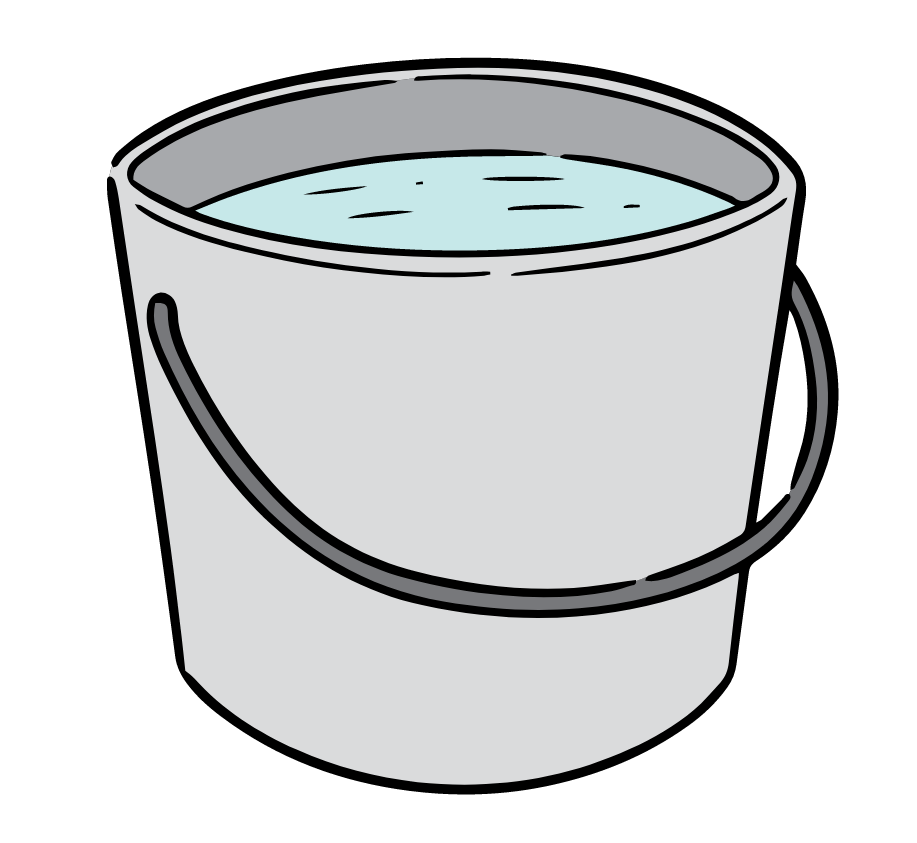Debunking Detox
Detoxification from a functional perspective.
The term “detox” has been exploited as a way to sell diet programs. But is there some truth to it? Do we need to “detox”? The answer is, as I typically say with nutrition… that it depends.
Detoxification, or the process of removing toxic substances, is an integral part of body functioning. Our cells, organs, and body systems are constantly clearing toxins to allow our cells to function. Toxins are not just drugs, alcohol, and external factors. Our body produces its own toxins as byproducts of normal metabolic reactions – this may be partially why we have “detox organs” (like the kidney and liver) in the first place.
Does everyone need detox support?
The short answer to this is no. But we do live in a world with more micro-exposures to toxins than humans have ever been before. The abundance of manmade “forever chemicals” like additives, pesticides, plastics, and medications continues to increase. Some individuals are more frequently exposed to or are around larger amounts of these toxins (ex. a car mechanic or a farmer) and others might be genetically less efficient at clearing toxins.

I like to think of our ability to clear out toxins as a bucket with a drain at the bottom. People exposed to larger amounts of toxins might be overflowing the bucket, while those who don’t detox as well, have a very small drain. These are examples of people who might need some “detox support”, which simply means they need some help opening up and supporting their natural pathways for detoxification.
Common signs that an individual has “sluggish” detoxification pathways include:
- Brain fog
- Fatigue/lethargy
- Headache
- Generalized joint and muscle pain
- Abdominal pain
- Newly developed sensitivities to food, environmental, or chemical triggers
- Development of autoimmune symptoms later in life
Sources of toxins and endocrine disrupters.
- Pesticides and GMOs
- Heavy metals (in air, food, water, dental fillings, supplements, etc.)
- Plastics (not just BPA) in water bottles, food containers, skincare products, water, appliances, etc.
- Personal care products and makeup
- Cleaning supplies
- Air fresheners and scented candles (anything with “fragrance”)
- Air pollutants
- Pharmaceuticals, antibiotics, drugs, and immunizations
- Unfiltered water
- Synthetic additives, sweeteners, coloring, and fragrances
- Alcohol
- Electromagnetic fields (X-rays, wireless devices, power plants, microwaves, etc.)
- Smoke and second-hand smoke
- Flame retardant treated furniture and fabric products
- Automobile exhaust and gasoline
- Mold (visible and invisible)
- New carpets and furniture products (emit off-gassing)
- Paints, glues, varnish, etc.
- Allergen exposure
- Biological/metabolic byproducts produced by the body (including inflammation)
Symptoms of high toxic load.
- Generalized joint and muscle aches and pains
- Difficulty concentrating
- Food, environmental or chemical sensitivities
- Irritability, headache
- Lethargy, fatigue, weakness
- Abdominal pain
What to do about it.
- Minimize exposure to environmental toxins
- Non-toxic cleaning products
- Toss the air fresheners, scented candles and perfumes (or look for those made with only essential oils, no “fragrance”)
- Get a high quality air purifier
- Avoid plastic products when possible
- Skip the smoking
- Purify water
- Close windows in idle traffic
- Never microwave plastic
- Hand wash plastic products
- Minimize exposure to food toxins
- Buy/choose organic where possible
- Glass/stainless steel food/drink containers
- Opt for low mercury fish
- Other
- **Support natural detoxification processes with whole, antioxidant-rich foods (this is so important!)
- **Bowel movements at least daily
- Manage stress
- High quality sleep
- Exercise
- Sweating/infrared sauna
- Epsom salt baths
- Lymphatic support/massage
- Sometimes high quality dietary supplements may help
Ultimately, most of the time when we hear the term “detox,” we can expect a scam… detoxing does not mean a juice cleanse, skinny tea, or fad diet. Understanding how we can minimize toxin exposure and support our body in clearing toxins is real.
If you believe that your detoxification pathways might be a little “sluggish,” start by implementing some of the above practices and reach out to a functional practitioner, who can support you!
DOWNLOAD THE GOOD NUTRITION 5-DAY DETOX RESET E-BOOK HERE!
About the Author
Morgan Goodstadt, MS, RD, CDN, LDN, IFNCP
Registered Dietitian, Master’s in Clinical Nutrition, Certified Integrative and Functional Nutritionist and Health Coach. Morgan combines her expertise in nutrition with evidenced-based functional medicine and experience in human behavior to help her clients improve their health, relationship with food, and overall wellbeing. Her philosophy aims to achieve balance in both the diet and other areas of life.

Sources:
- Noland D, Drisko JA, Wagner L, eds. Integrative and Functional Medical Nutrition Therapy: Principles and Practices. Humana Press; 2020.
- Hodges RE, Minich DM. Modulation of Metabolic Detoxification Pathways Using Foods and Food-Derived Components: A Scientific Review with Clinical Application. J Nutr Metab. 2015;2015:1-23. doi:10.1155/2015/760689
- Bland J. The Disease Delusion: Conquering the Causes of Chronic Illness for a Healthier, Longer, and Happier Life. First HarperWave paperback edition. HarperWave, an imprint of HarperCollinsPublishers; 2015.
- Cho K hee, Jung S hun, Choi M sun, Jung Y jin, Lee CG, Choi N choul. Effect of water filtration infrared-A (wIRA) sauna on inorganic ions excreted through sweat from the human body. Environ Sci Pollut Res. Published online October 8, 2022. doi:10.1007/s11356-022-23437-3
- Kim JA, Kim JY, Kang SW. Effects of the Dietary Detoxification Program on Serum γ-glutamyltransferase, Anthropometric Data and Metabolic Biomarkers in Adults. J Lifestyle Med. 2016;6(2):49-57. doi:10.15280/jlm.2016.6.2.49
- Endocrine Disruptors. NIH: National Institute of Environmental Health Sciences. https://www.niehs.nih.gov/health/topics/agents/endocrine/index.cfm
- Perfluoroalkyl and Polyfluoroalkyl Substances (PFAS). NIH: National Institute of Environmental Health Sciences. https://www.niehs.nih.gov/health/topics/agents/pfc/index.cfm
- Pesticides. NIH: National Institute of Environmental Health Sciences. https://www.niehs.nih.gov/health/topics/agents/pesticides/index.cfm
- FDA Authority Over Cosmetics: How Cosmetics Are Not FDA-Approved, but Are FDA-Regulated. FDA. Published March 3, 2005. https://www.fda.gov/cosmetics/cosmetics-laws-regulations/fda-authority-over-cosmetics-how-cosmetics-are-not-fda-approved-are-fda-regulated
- AL-Ishaq RK, Overy AJ, Büsselberg D. Phytochemicals and Gastrointestinal Cancer: Cellular Mechanisms and Effects to Change Cancer Progression. Biomolecules. 2020;10(1):105. doi:10.3390/biom10010105
Download my free guide:
Debunking Detox
The term “detox” has been exploited as a way to sell diet programs. But is there some truth to it? Do we need to “detox”? The answer, as I typically say with nutrition, is that it depends.